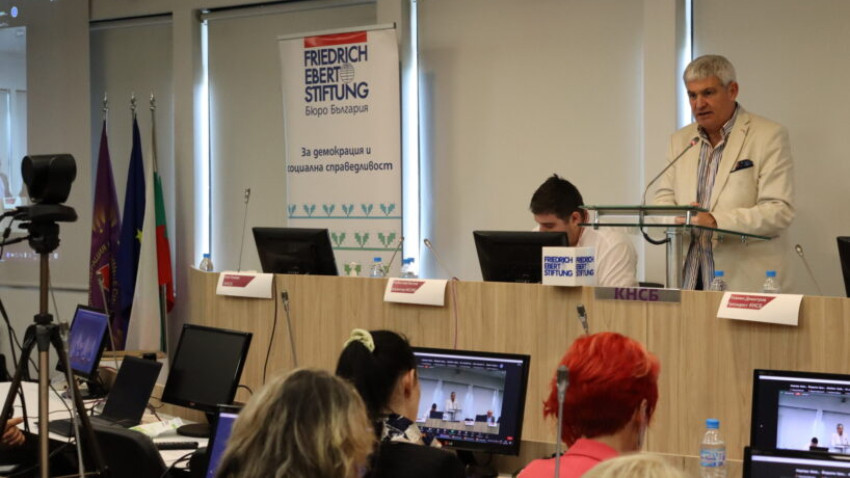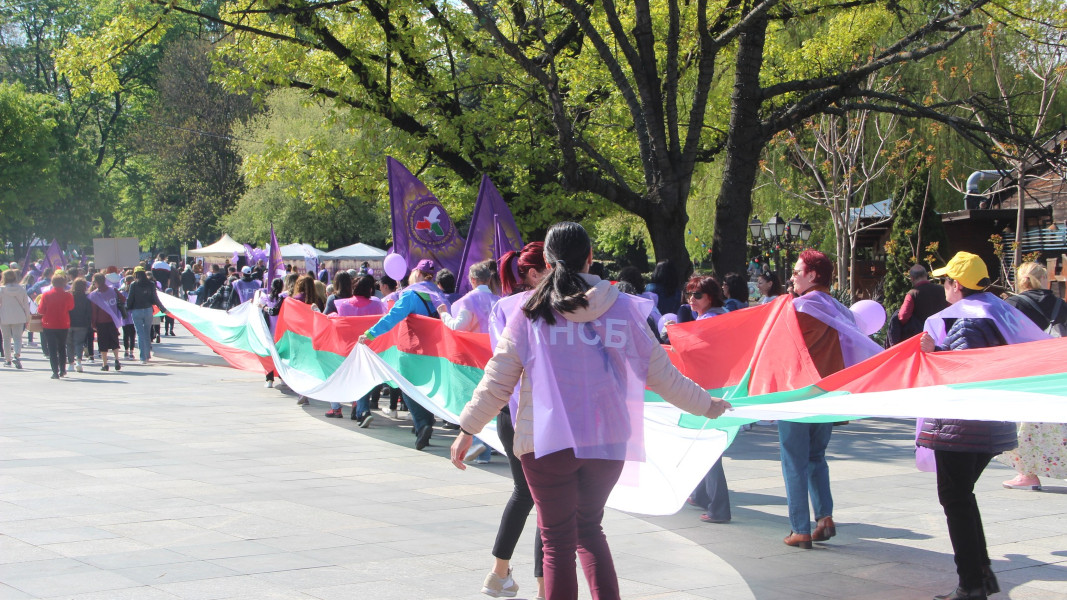Bulgaria remains the country of the EU with the lowest incomes, and this problem was actually made worse by the series of crises – first the pandemic, then Russia’s war in Ukraine, the energy crisis, and all this crystallizing into a “cost of living crisis” or an “incomes crisis”.
“That is a major crisis and it is being discussed in Europe, though in Bulgaria any debate on the matter seems to be avoided,” Plamen Dimitrov, President of the Confederation of Independent Trade Unions in Bulgaria (CITUB) said at the opening of a discussion forum with the participation of all federations and trade unions from the budgetary and the real sector which are members of the confederation.

The public debate focused most of all on salaries in Bulgaria, as in the coming weeks a discussion is to take place on the belated state budget for the current year.
Paradoxically, this is happening mid-year, and in practice whatever may be set down in the budget, it will only be valid for the space of half a year. Nevertheless, the CITUB is raising the issue of the sense of impoverishment in the country over the past two years, saying that before this period of high inflation, the tendency was towards a rise in incomes.
“Now, the measures in the budget are going to be minimalistic, even though hundreds of millions have been budgeted for as compensation for the salaries in various sectors – these measures will only preserve the level of people’s purchasing power, they won’t make them any richer,” says, in an interview with Radio Bulgaria CITUB President Plamen Dimitrov, and goes on to add that there is a way more money can be provided to the budgetary sphere - by collecting revenue and cutting down on needless expenditure:
“It can balance the budget at a 3% deficit until the end of the year, and provide the necessary funding - which we believe to be an additional approximately EUR 238 million for the half-year only - that will provide a minimal amount of movement, but it won’t be smooth because the old salary hikes in the past two years were not the same in the different sectors. That is why we are aiming at additional compensations for the inflation in each sector where there haven’t been any compensations, and at another increase of 10% in budget 2023, which would be compensation for the inflation in 2023, which is going to be approximately 10%.”
Every employer is obligated to compensate for the inflationary values - registered as the average inflation rate for the country - in their employees’ salaries, the CITUB says, and adds that the personal inflation rate for each person in the country, or in other words, the sum you have to pay when you go to the store, is far higher than the statistically registered 8-10%. 
“Personal inflation during the past two years stands at around 30%,” says Plamen Dimitrov and points to one more paradox in the country – salaries in the budgetary sphere are far below the normal levels that could motivate people to continue working there instead of going out to look for another job:
“What matters most to the people the government is paying, and who are actually working for us all, with our taxpayer money, is decent pay, their purchasing power so that they can be motivated and deliver a better quality of service to us all. Starting with the administration - central and local, which contrary to all the rumours going round is less than 100,000 people. Then there are the people working in health care, in education and culture, and that takes us to these 420-430,000 people who, rumour has it are civil servants, but in fact they are not. The ratio in each individual sector as compared to the entire population of Bulgaria is comparable to the European average, so there definitely is no distortion. And all this in the conditions of the deepening of the negative tendencies on the labour market – a shortage of no less than 25,000 candidates for the job vacancies declared by employers and the institutions. The problem is aggravated by the continuing emigration – from all sectors, branches and regions of the country. That is something that worries us, and it is a main talking point in the public and political debate,” says Plamen Dimitrov, President of the Confederation of Independent Trade Unions in Bulgaria, one of the two leading trade unions in the country.
Translated from the Bulgarian and posted by Milena Daynova
Photos: CITUB
The Bulgarian minority in Romania marked a significant event with the official opening of the Bulgarian Inn in the village of Izvoarele (Hanul Bilgarilor), Teleorman County (Southern Romania)- a locality with Bulgarian roots dating back over 200 years...
The 14th edition of DiVino.Taste, Bulgaria’s leading forum for wines and winemakers, will take place from 28 to 30 November at the Inter Expo Centre in Sofia. Over 80 producers from all wine regions will participate, offering tastings of around 600 of the..
Minutes before the second and final reading, at the parliamentary budget and finance committee, of the state budget for 2026, the leader of the biggest party represented in parliament GERB Boyko Borissov halted the procedure and sent the draft bill..

+359 2 9336 661
